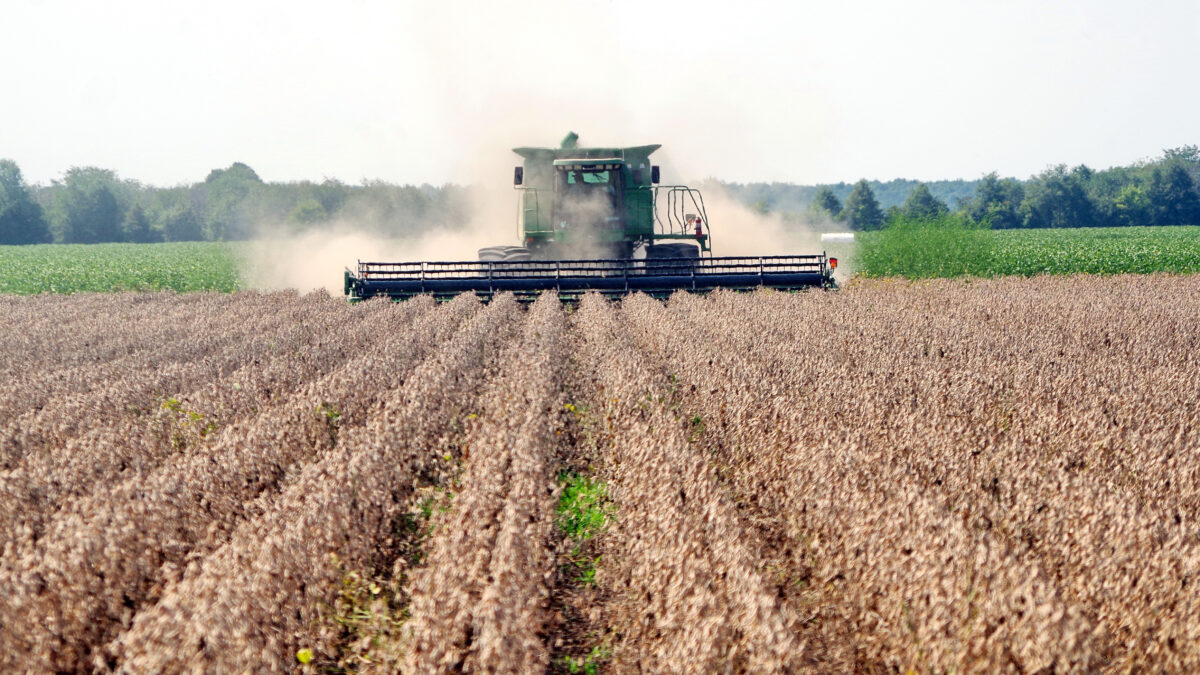Helping Everyone in Agriculture
TOPICS
Farm EconomyZippy Duvall
President

photo credit: Arkansas Farm Bureau, Used with Permission
Zippy Duvall
President
The American Farm Bureau’s official mission statement is something that all of us in Farm Bureau are proud of and work hard to honor. Every word of it is important. However, you could paraphrase our mission statement with just four words: help everyone in agriculture — emphasis on “everyone.” While that statement is short and simple, carrying it out isn’t always easy. Working for all types of agriculture across the country is a challenge that we gladly accept and, I believe, meet, each and every day.
As we deal with the COVID-19 pandemic, we’re mindful of the need to ensure that all sectors of agriculture are included in coronavirus assistance measures. A good start was made when Congress authorized $9.5 billion for USDA to help specialty crop, livestock, and other producers, in addition to the $14 billion authorized to help other crop producers under the Commodity Credit Corp.
The sooner we have a timeline for getting this new assistance out, the better.
Now it’s time for USDA to get that assistance into the hands of farmers and ranchers. We commend the department for its efforts so far to support American agriculture. The sooner we have a timeline for getting this new assistance out, the better.
Farm Bureau has a unique advantage in that we have organizations in every state and almost every county. After extensive outreach to Farm Bureau leaders around the country, the American Farm Bureau sent a comprehensive letter to Agriculture Secretary Sonny Perdue to relay what we’re hearing from farmers and ranchers. They need help in order to continue putting food on Americans’ tables.
Most of us have seen the pictures of milk being dumped as co-ops and processors cope with a sharp decline in demand from food service companies and schools. Our letter outlined several steps we are recommending to support dairy farmers, including direct payments, government dairy buys, an indemnity program for producers who have had to dump milk or otherwise forgo compensation, and other actions. We are also assisting state Farm Bureaus in getting word out to producers that dumping milk can have significant environmental repercussions. Producers need to comply with the law if they are forced into this position.
As futures prices for hogs and cattle plummet and poultry producers hear that processors are cutting supplies of live birds, we are recommending that USDA create a special direct payment for livestock and poultry producers, consider purchases for distribution in nutrition assistance programs and monitor the markets to guard against price manipulation. We’re also advising that catfish, crawfish and aquaculture producers be eligible for assistance, as 60% of their sales comes from restaurants that are now largely closed.
We’ve been working for weeks to address the labor demands in fruit and vegetable production and ensure government agencies provide maximum accessibility to the agricultural workforce. But now we’re seeing dumping of fresh zucchini and other produce due to school and restaurant closures. USDA purchases would help stabilize the fresh producer sector. We’ve also asked USDA to ensure that payments for specialty crop growers get to all producers experiencing impacts, regardless of farm size.
Other agricultural sectors also are hurting. Cotton growers have seen their price fall to its lowest point in more than a decade. Ethanol and biofuel demand has crashed as we all drive less, putting a serious dent in the price of corn and wrecking the supply of distillers dried grains as a cost-efficient source of animal feed.
Other sectors that are affected and need relief include forage crops, nurseries and greenhouses, specialty livestock and equine, tobacco, craft beverage producers and wineries, farmers who depend on farmers markets that are no longer operating, livestock producers whose auctions have been canceled, producers in hydroponics, aquaponics and other indoor production — the list is long. We’ve worked hard to make sure that we are representing all sectors and helping everyone in agriculture.
We’re also monitoring the food supply chain and the supply of farm production inputs such as fertilizers. If farmers can’t get what they need to grow crops today, we could have big problems tomorrow. Farmers also need access to personal protective equipment such as masks as they try to keep their farm workers safe and healthy.
It can be surprising to hear about the different ways this situation has affected people across agriculture. The complexity of our agriculture and food system is absolutely amazing. I have so much respect for what it takes to keep us #stillfarming and get what we grow into stores and onto plates. It is impressive! And I’m impressed with all the Farm Bureau leaders and staff who have their finger on the pulse of how the pandemic is affecting all farmers and ranchers, so we can help.
I hope you’re all staying healthy and safe, and I trust you’ll let Farm Bureau know how we can continue to help everyone in agriculture.
Zippy Duvall
President
Vincent “Zippy” Duvall, a poultry, cattle and hay producer from Greene County, Georgia, is the 12th president of the American Farm Bureau Federation.
Top Issues
VIEW ALL